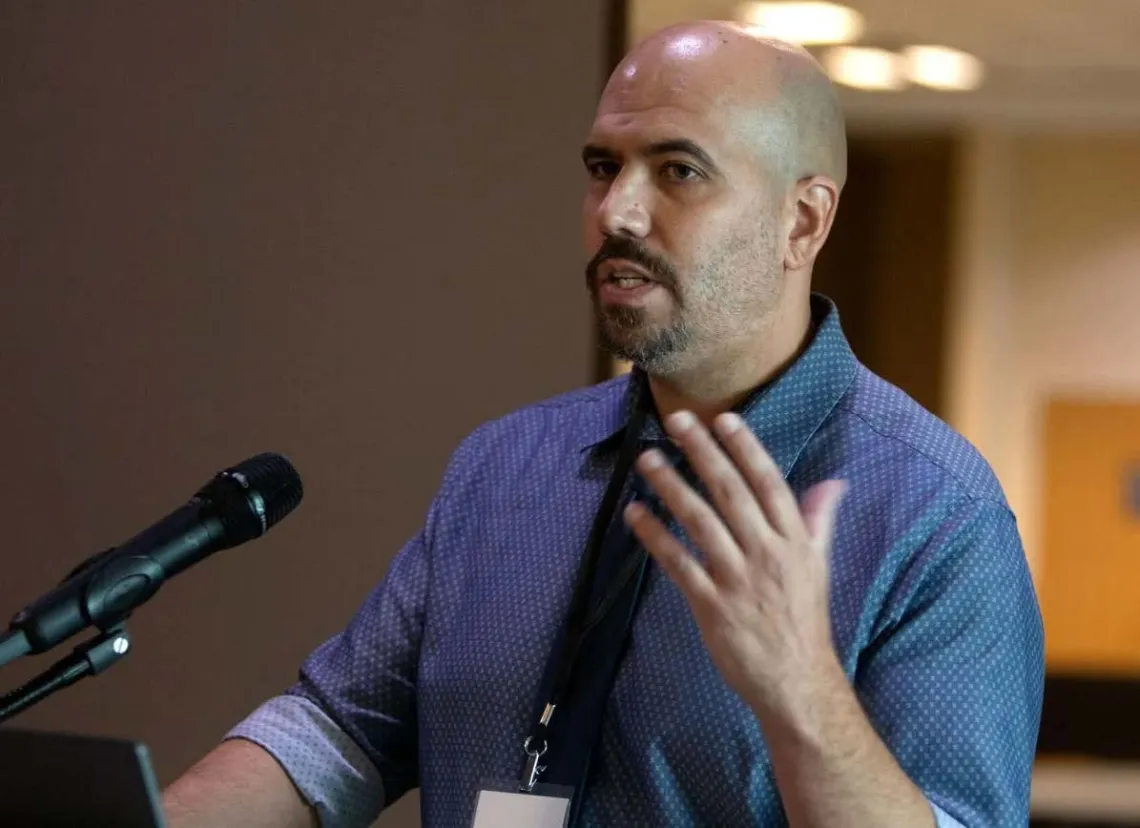Documenting Migrant Deaths Border-Wide is focus of UA Conference
Binational Migration Institute

Daniel E. Martinez talks about Title 42 expulsions and migrant deaths during a conference Friday at the University of Arizona on migrant deaths. The conference focused on the importance of all border states establishing a centralized, standardized system of counting these deaths, in order to inform U.S. border enforcement policy.
Researchers, academics and forensic experts from all four southern-border states met Friday at the University of Arizona to pursue a set of shared goals: developing a standardized system to do current migrant deaths along the U.S.-Mexico border, and building a centralized database to help illuminate trends in migration.
Effective and humane border policy requires a deeper understanding of migrant deaths border-wide — and that requires good data, said Daniel E. Martínez, co-director of the UA’s Binational Migration Institute and an associate professor of sociology.
Martínez is a member of the multi-state working group whose members gathered at the UA Student Union Memorial Center Friday for a mini-workshop. It was the public portion of the group’s three-day conference on migrant deaths, funded by a grant from the UA’s Office of Research, Innovation and Impact.
Lacking reliable federal data on migrant deaths at the border, stakeholders in various states have taken it upon themselves to develop sound methods to document the deaths. These efforts will hopefully also help policymakers better understand the impact of U.S. border policy, Martínez said.
The Pima County Office of the Medical Examiner has led the way in this field, and has become a model for other forensic efforts.
“They really represent the gold standard when it comes to trying to classify, enumerate and track migrant deaths, and also to work with consulates and NGOs to help identify individuals and reunite the remains with loved ones,” Martínez said. “Nothing like this really exists in other regions of border.”
The workshop’s panelists — hailing from California, Arizona, New Mexico and Texas —discussed their efforts to count migrant deaths, the challenges they face and their progress so far.

